Bardet calls for ban on race radios
'I'm not in cycling to be Sky's enemy number one' says Frenchman
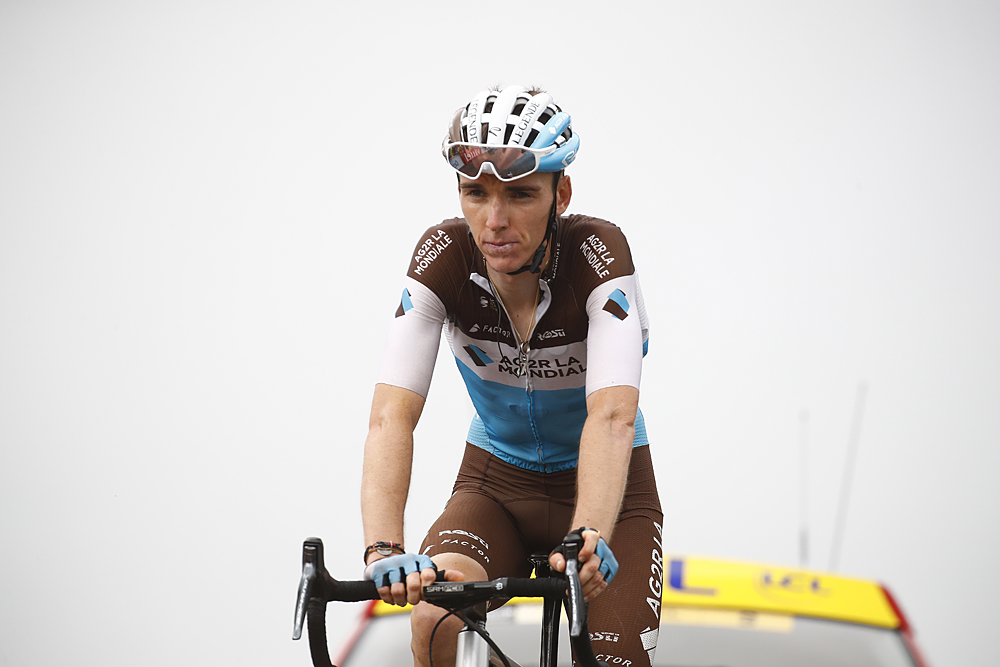
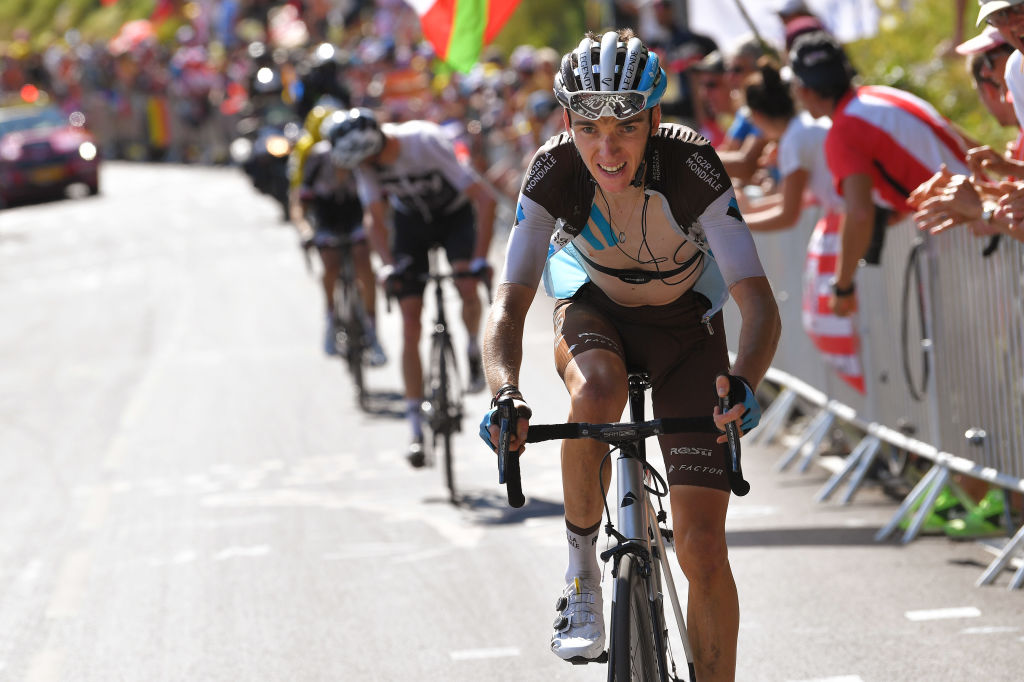
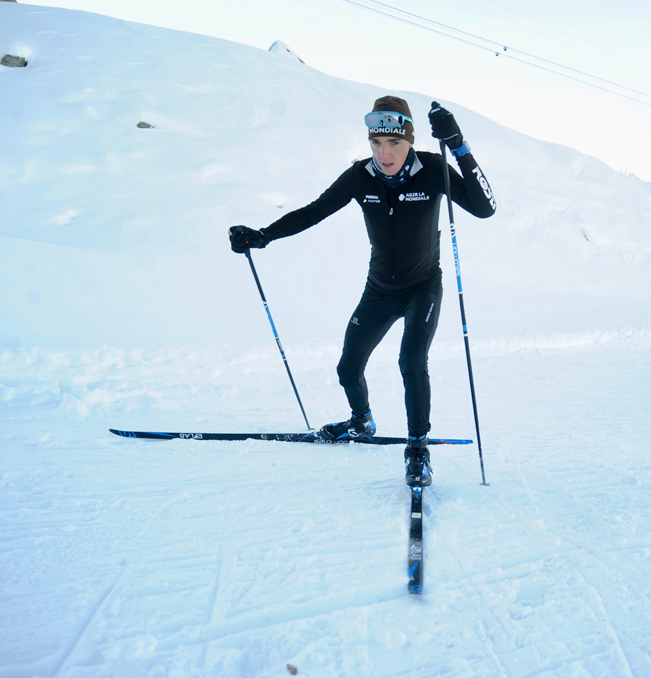
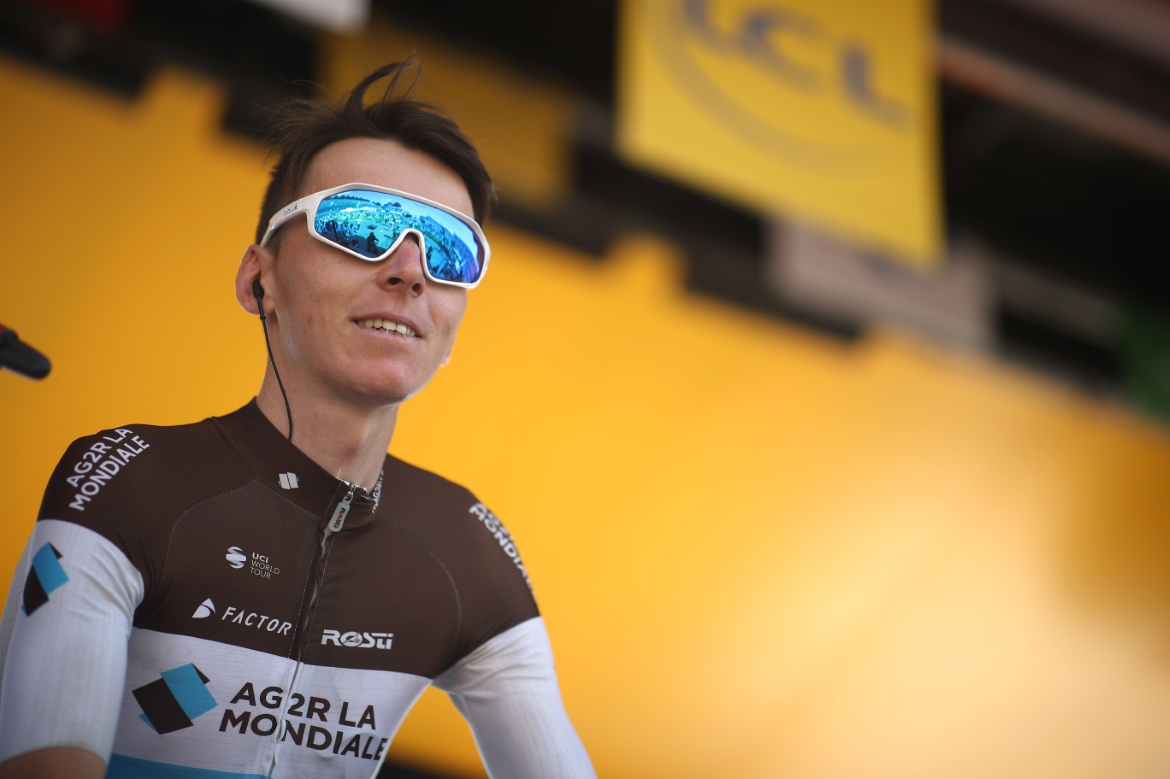
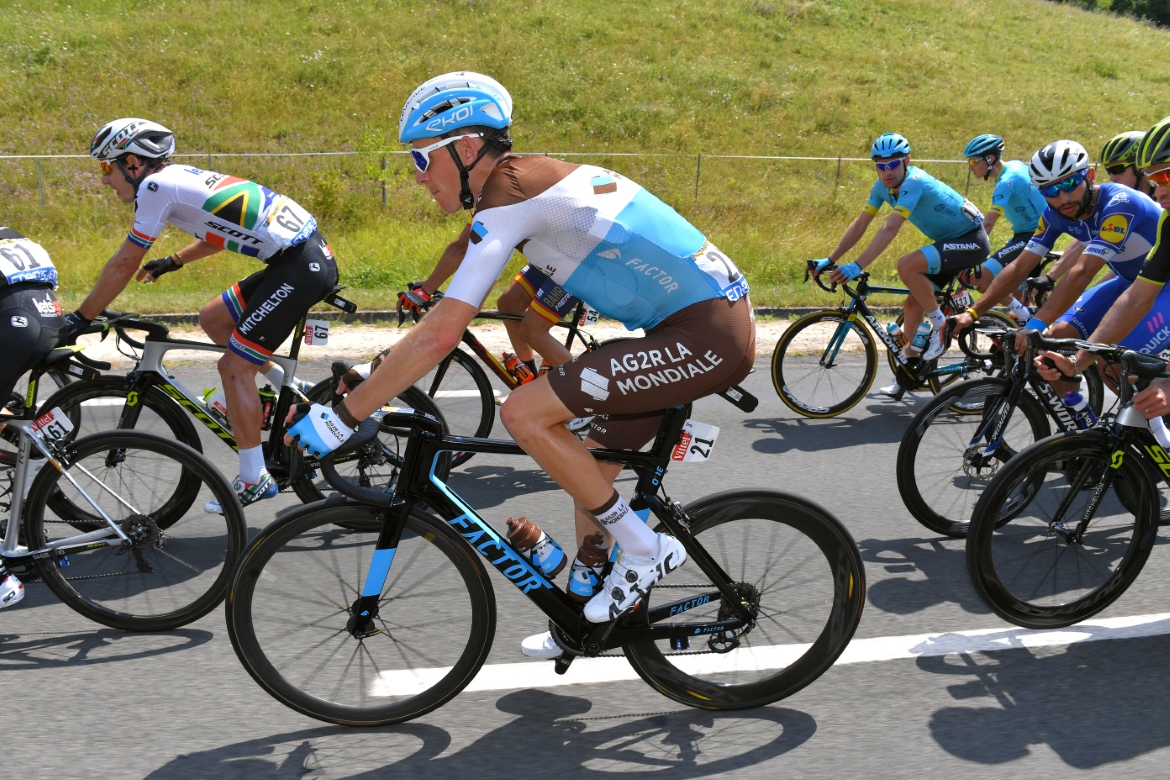
Romain Bardet has come out in support of taking away team race radios, arguing the measure would help make racing more unpredictable by 'elevating the rider as an athlete.'
Acknowledging that his stance on the matter had changed, the Frenchman said he would support a ban on the earpieces through which riders are fed in-race information from their directors, such as alerts to key junctures of the route and updates on who is where on the road.
It's just one aspect of a wider debate that is currently raging over how to make the sport more exciting, with Bardet himself making reference to the sense of frustration at the way Team Sky have come to dominate the Tour de France with an ever-tightening stranglehold.
"The true concern, in the minds of certain people, is the predictability of the race. That's the greatest thing at stake," Bardet told reporters in a long interview at the AG2R La Mondiale team's training camp in the French Alps this week.
"That notion that Sky could almost win the Tour with any of their riders – that's what race organisers want to tackle, to try to create more unpredictable scenarios."
Tour de France organisers ASO have indeed tried to do just that. The amount of time trialling has dropped markedly in the last few years, while race director Christian Prudhomme has openly voiced his desire for a more open race, proposing a ban on power-meters and successfully pushing for a reduction in team sizes.
Bardet finished on the podium of the Tour behind Chris Froome in 2016 and 2017, and he was sixth this year as Geraint Thomas took over the mantle at the big-money British team. Earlier this month he said he would support any measure that would shake up the Tour, and this week he picked out race radio as the best place to start.
Get The Leadout Newsletter
The latest race content, interviews, features, reviews and expert buying guides, direct to your inbox!
"I think a world without earpieces would be a very good thing. It would make the riders take a bit more responsibility. It would heighten their tactical sense and awareness. You'd have to be more alert to the race. I think it would elevate the rider as an athlete, not having that information," Bardet said.
"For me personally, I find the earpieces make you that bit more passive, waiting for information before you make a move. Without them you're looking at who is where, you can't let dangerous riders out of your sight, and it makes the race a more intense experience, from within. It gives more uncertainty.
"Often the information you get – 'be well-positioned at kilometre 80' and so on – with 180 riders all getting that in their ears, it can increase the risk of crashes as well."
While there have previously been calls for race radios to be banned, the topic that creates the fiercest debate is power-meters. Some, such as Alberto Contador, are convinced riders are becoming ever more robotic, calculating their efforts mathematically, while others insist riders know their own bodies and taking their data away from their eyes wouldn't alter the way they ride.
"I'm not really sure," says Bardet. "I don't really think it's such a bad thing to take them away, but I don't think it's the magic solution either."
Nevertheless, he did suggest trying a ban in order to remove the doubt. "It's more about bringing ideas to the debate," he said. "These things are not easy to put in place, and reforms cannot happen quickly, but it's good to have things to reflect on."
One matter of which Bardet is more certain is that of team sizes. With no shortage of influence from Prudhomme, who is also head of the International Association of Race Organisers, team sizes were reduced this year, dropping from nine riders to eight in the Grand Tours.
Bardet would like to see that drop yet further, highlighting his preference for six-man teams and more squads on the start line.
"Let's reduce it again. It would quickly put teams in trouble. Maybe it's a bit extreme for the Tour de France – a couple of crashes and you could be down to four – but that's sport, it can be cruel," Bardet said.
"If you go from eight to six, the tempos are not the same over 180km if there are six of you, compared to eight. I think overall it would reduce the room for control, and that would give a lot of appeal to the race."
'I'm not in cycling to be Sky's enemy number one'
Bardet explicitly referenced Team Sky when discussing measures that might improve the spectacle of the sport, and he went on to touch on the rivalry between his AG2R team and the British outfit, hinting at tensions bubbling beneath the surface.
His proposals are unlikely to go down well in Manchester, and the two teams have increasingly rubbed shoulders on the road in recent years. As Bardet has grown as a yellow jersey contender, he has set his team up to try to upset Team Sky's rhythm. 'Destabilise' has become something of a mantra at AG2R, and they now see themselves as the chief chaos-mongers acting in opposition to Sky's control. Sky have in turn questioned AG2R's presence at the head of affairs at certain moments in the past couple of Tours when they've held the yellow jersey, and things threatened to turn sour at this year's Criterium du Dauphine when Geraint Thomas accused them of attacking when he'd punctured.
Bardet was in light-hearted mood when it came to discussing the rivalry. At one point he was asked he if felt 'targeted' by Sky, to which, laughing, he replied: "I'm not going to play the victim. Maybe I'm on their shortlist of riders 'to target', but I'm not going to sit here in front of you and say 'ah I was...'"
"The episode at the Dauphine left a mark…?" came an interjection.
"The Dauphine? I'm not sure which episode you mean - there were several," Bardet quipped again.
"No," he continued more seriously. "I can say with certainty that at no moment [has there been any real bad blood]. On Alpe d'Huez when they were trying to chase me down, Geraint Thomas goes on to win the stage. It's part of their plan. But it's ours to go out and unsettle them. It's a good battle. It remains a sporting one.
"I'm not in cycling to be enemy number one of Sky."
Bardet suggested that the rivalry was in part drawn along national lines. Team Sky received a hostile welcome on the roads of France this July, and Bardet – who called for respect at the time - suggested that painting Sky as villains helps the French - who have waited more than 30 years for a home winner of the Tour – focus their support of Bardet and others.
"The Tour is the biggest event, the spectators are bit less familiar with cycling culture – they see the sport slightly differently and want to see an attractive spectacle," he said, drawing a comparison with the lack complaints at Quick-Step's dominance of the Spring Classics.
"We're all guilty, when our national teams are playing, of being a bit chauvinistic. We like to feel slightly wronged by our rival. It's a very French thing."
Patrick is a freelance sports writer and editor. He’s an NCTJ-accredited journalist with a bachelor’s degree in modern languages (French and Spanish). Patrick worked full-time at Cyclingnews for eight years between 2015 and 2023, latterly as Deputy Editor.
